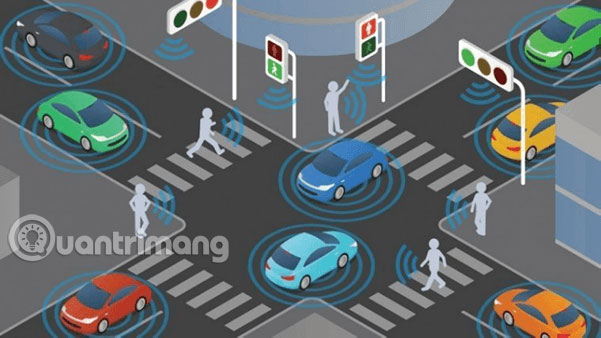The difference between AI (Artificial Intelligence) and Cognitive Computing (Cognitive Computing)
From data processing software to robots, self-driving cars or factories of the future, AI is becoming a symbol of the era of Internet of Things (IoT).
Cognitive Computing is another term commonly used as an alternative to artificial intelligence. However, these two concepts have differences. It is very important to know the difference between an AI-based IoT system and a Cognitive Computing-based system, thereby understanding what to expect from each system.
What is Cognitive Computing?
Cognitive Computing, or cognitive computing, refers to a new era of supercomputer, where computers mimic the activity of the human brain and help make better decisions. Making decisions on behalf of people is the key to making Cognitive Computing different from AI.
The above definition emphasizes: The real scope of cognitive computing goes beyond IoT. Although IoT is very important, Cognitive Computing has broader applications in quantum physics, cryptographic analysis, aerodynamics and many other academic fields.
With Cognitive Computing, people are still responsible for the final decision made. Large chip manufacturing companies including IBM, Intel or Microsoft, as well as promising startups, are researching new solutions for Cognitive Computing.

Intel has developed the world's first brain-simulation chip, called Loihi, using feedback from the environment so that computers can learn to cope with every situation.
Clearly, Cognitive Computing is a big change for the entire computing world, because it makes computers no longer a senseless machine but like the real human brain.
Examples of IoT applications
To analyze a large amount of data, cognitive computer can use AI, deep learning, machine learning, text mining, voice assistant or neuro -linguistic programming (NLP - programming language thinking). This helps scientists and researchers quickly solve all problems, apply new hypotheses and expand their models.
Although smarter AI assistants can use many of the same precision tools, their ultimate goal is not only limited to super-fast self-calculation. They are clearly applied in the operation of smart devices.
Validate this by using an example of advanced traffic management systems. With Cognitive Computing, a control center will receive input from all cars and traffic signals in the city. Try thinking about Big Data, cloud computing and traffic regulation activity on the roads.

Tasks like reducing traffic volume, guiding pedestrians, stopping collisions and allocating parking spaces will require AI assistance. AI must be deployed on vehicles as well as a traffic management center.
Another example, consider the role of AI and Cognitive Computing technologies in hospital care management at hospitals. While Cognitive Computing can help a busy manager, keep track of empty patient beds, employee turnover, timesheets, etc., AI robots can help take care of patients in practice. .

This article covers the difference in the definition between AI (artificial intelligence) and Cognitive Computing.
However, the ongoing industrial trend shows that IoT companies do not care much about these differences.
Despite the fact that artificial intelligence is the next leap of supercomputers, many people feel the term is more or less a marketing gimmick (because this concept was first introduced by IBM. - a large multinational computer technology group in the US). Currently, the number of companies using both interchangeable terms is increasing. And AI can become the general term for all these concepts in the future.
You should read it
- ★ Learn about Edge Computing: New boundary and border computing of the Web
- ★ Sony launches the world's first Bravia XR TV with human awareness
- ★ Quantum computing - a marathon, not a sprint contest!
- ★ Cloud computing - revolutionizing cheap computing with the Internet
- ★ What is Serverless Computing?